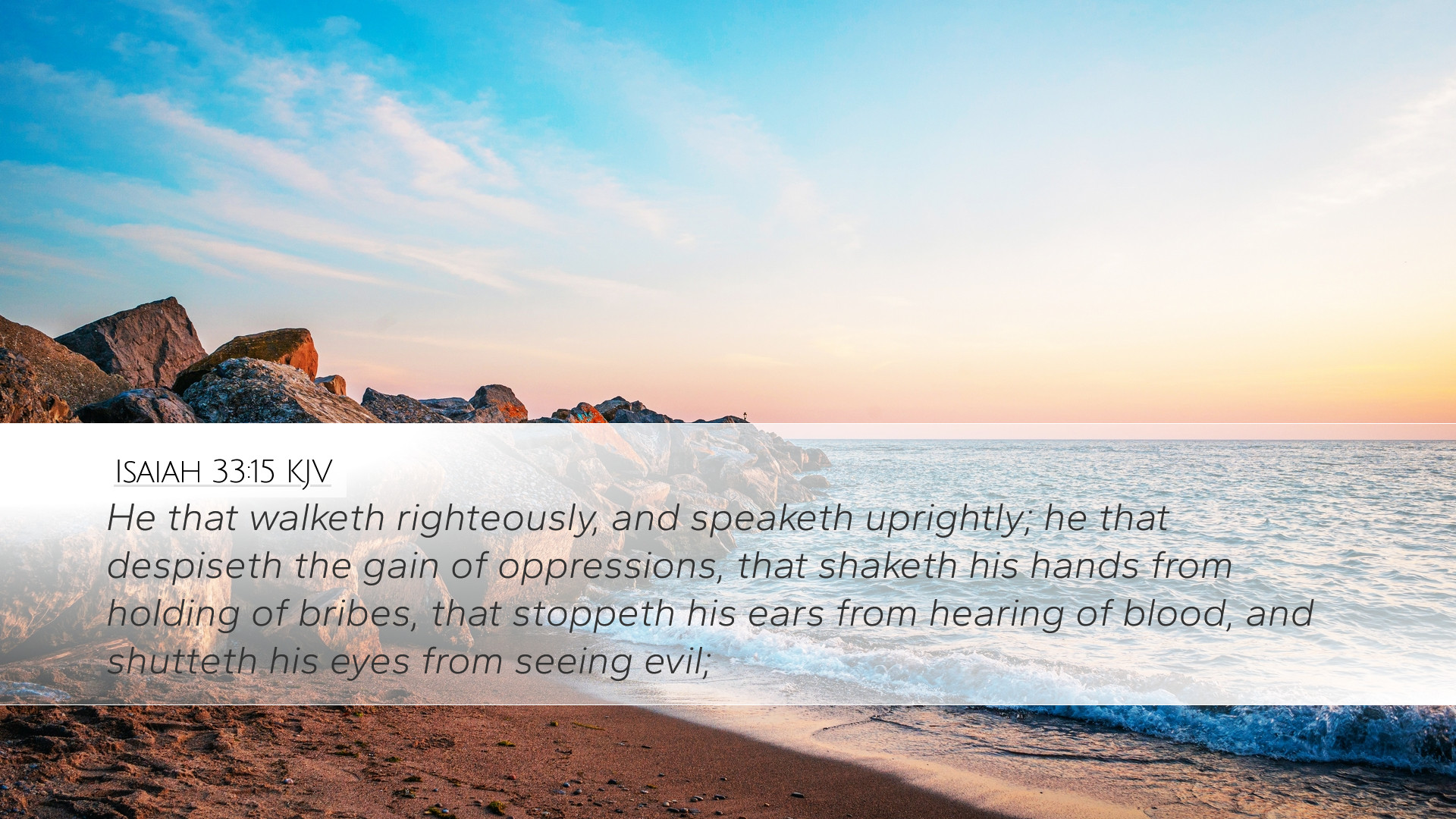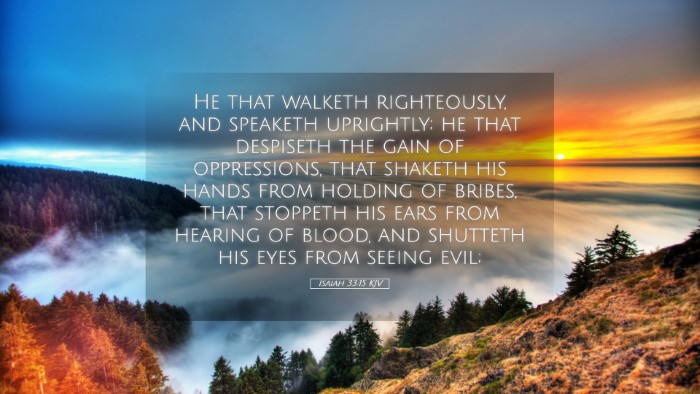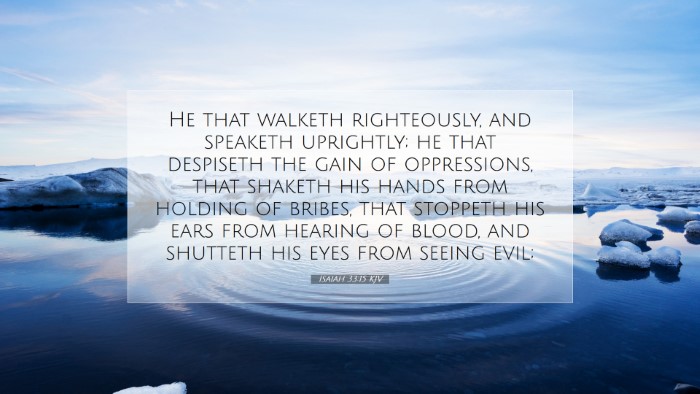Commentary on Isaiah 33:15
Isaiah 33:15 states: "He that walketh righteously and speaketh uprightly; he that despiseth the gain of oppressions, that shakketh his hands from holding of bribes, that stoppeth his ears from hearing of blood, and shutteth his eyes from seeing evil;"
Introduction
This verse presents a vivid portrait of the qualities and behaviors required of the righteous individual in the face of societal corruption. Drawing insights from various esteemed public domain commentaries—particularly from Matthew Henry, Albert Barnes, and Adam Clarke—this commentary explores the weighty implications of walking in righteousness and the moral fortitude required to resist the evil that permeates society.
Contextual Analysis
Isaiah prophesies during a time of great turmoil and moral decay in Judah. The idolatry and corruption prevalent among both the leadership and the populace necessitate a clarion call for righteousness. This verse serves as both a definition of righteousness and an admonition for the people of God.
Righteous Walk
“He that walketh righteously” refers to the fundamental characteristic of God's people: living in accordance with His laws. Matthew Henry emphasizes that this is not merely external behavior but a heart condition that reflects a genuine love for God’s commandments. Such a life is marked by integrity and devotion.
Upright Speech
Continuing with the clause “and speaketh uprightly,” we understand that the words of a righteous person are consistently truthful and reflect an honest character. Albert Barnes remarks that the connection between righteousness and speech is critical, suggesting that integrity in one's words is as crucial as integrity in actions.
Desire for Justice
The verse also highlights the individual who “despiseth the gain of oppressions.” Adam Clarke elucidates that this reflects a disdain for unjust profit arising from the exploitation of others. A righteous individual abhors the affluence derived from corruption and works against systemic injustices.
Resisting Temptations
The phrase “that shakketh his hands from holding of bribes” illustrates the necessity of active resistance against corrupt practices. Matthew Henry notes that to shake one's hands implies a decisive refusal to accept bribes. This indicates a conscientious choice to pursue moral and ethical purity, despite external pressures to compromise.
Guarding the Heart
Next, the repetition of themes of moral vigilance appears as the verse describes one who “stoppeth his ears from hearing of blood.” This denotes a deliberate choice to avoid participation in violence and bloodshed, emphasizing the importance of protecting oneself against influences that incite hatred or violence. Albert Barnes comments that this is indicative of a heart that seeks peace and not conflict.
Avoiding Evil
Finally, “shutteth his eyes from seeing evil” reinforces the necessity of not only rejecting wrongful actions but also distancing oneself from witnessing or endorsing them. Adam Clarke asserts that to shut one’s eyes symbolizes a profound commitment to maintenance of purity and a purposeful avoidance of any engagement with immorality.
Theological Implications
The theological implications of Isaiah 33:15 are deeply significant. This verse not only articulates the qualities of the righteous but also serves as a standard for moral conduct in the Kingdom of God. It underscores the expectation that believers are to be holy as God is holy (1 Peter 1:16), which is fundamentally tied to their identity as His followers.
Righteousness and Community
This righteous walk reflects a commitment to community ethics and justice. By emphasizing righteous speech, actions, and the despising of gains from oppression, Isaiah advocates for a community that is morally accountable, upholding justice and integrity at every level.
The Role of the Righteous
The role of the righteous is pivotal in influencing the societal landscape. They serve as a reflection of God’s nature and are instrumental in leading others away from evil practices. Matthew Henry reminds us that the example of the righteous can lead to a transformation of society, highlighting the call to live in such a way that others may see the light of God’s truth through our lives.
Conclusion
In summary, Isaiah 33:15 is a profound encapsulation of the characteristics defining righteousness in the eyes of God. Through insights drawn from prominent commentaries, we find that righteousness encompasses not only personal behavior but also a commitment to justice, integrity, and moral purity in speech and actions. As scholars, pastors, and students of the Word, it is essential to embody these principles and effectively communicate this vital message to our communities. The call to holiness amidst a corrupt society remains ever relevant, and the principles elucidated in this verse provide a guide for living a life pleasing to God.


